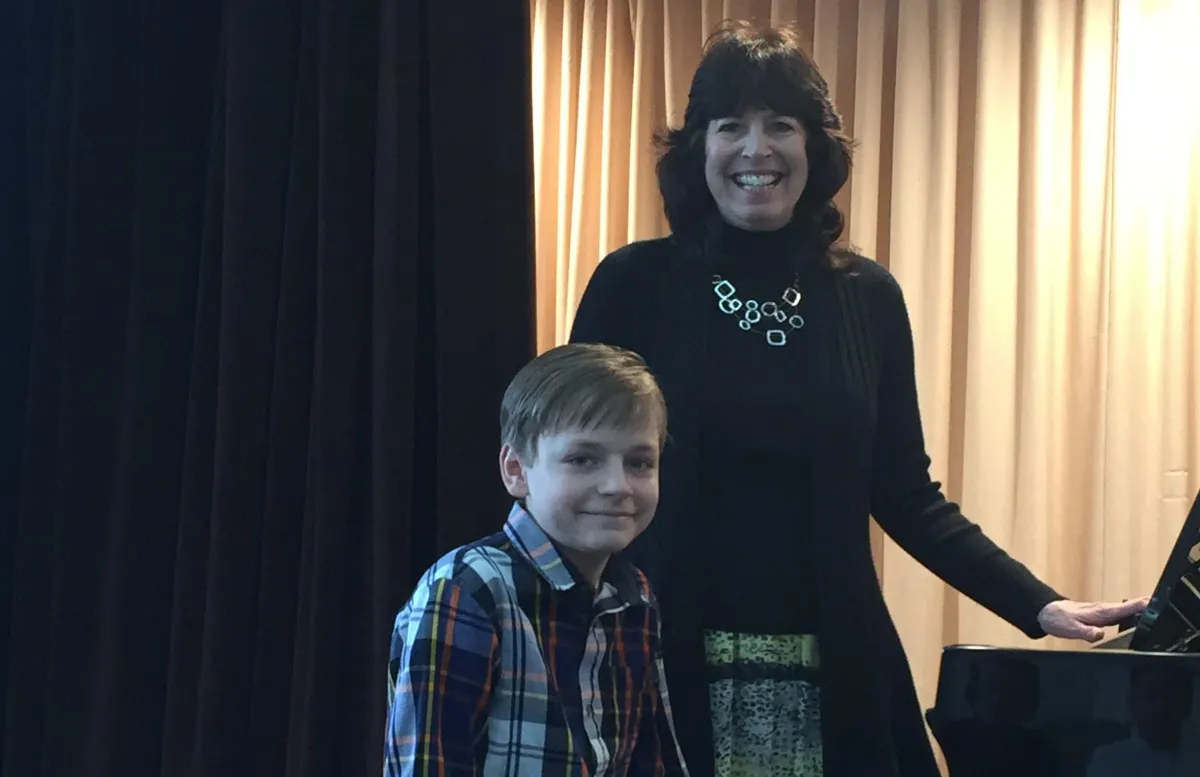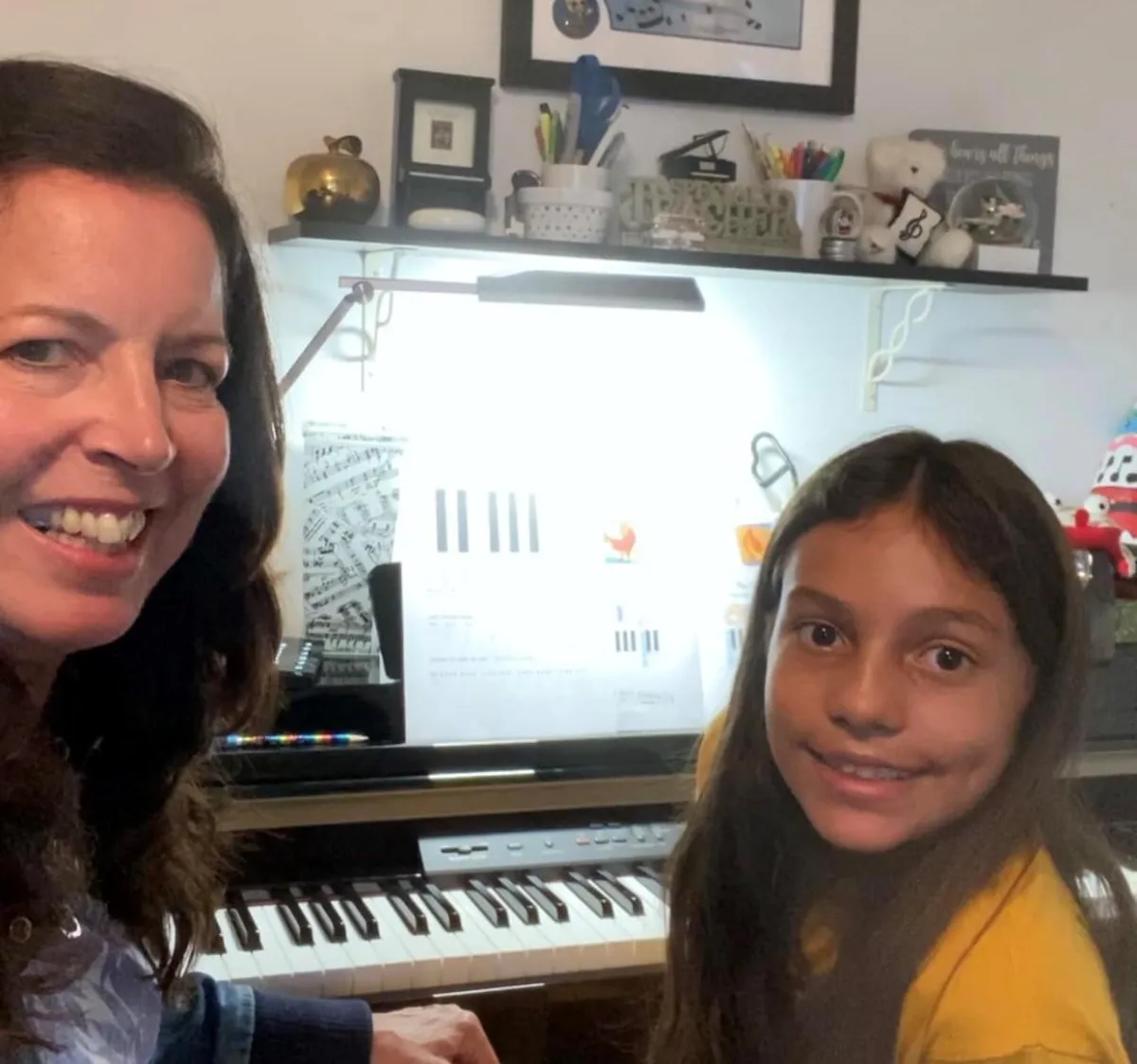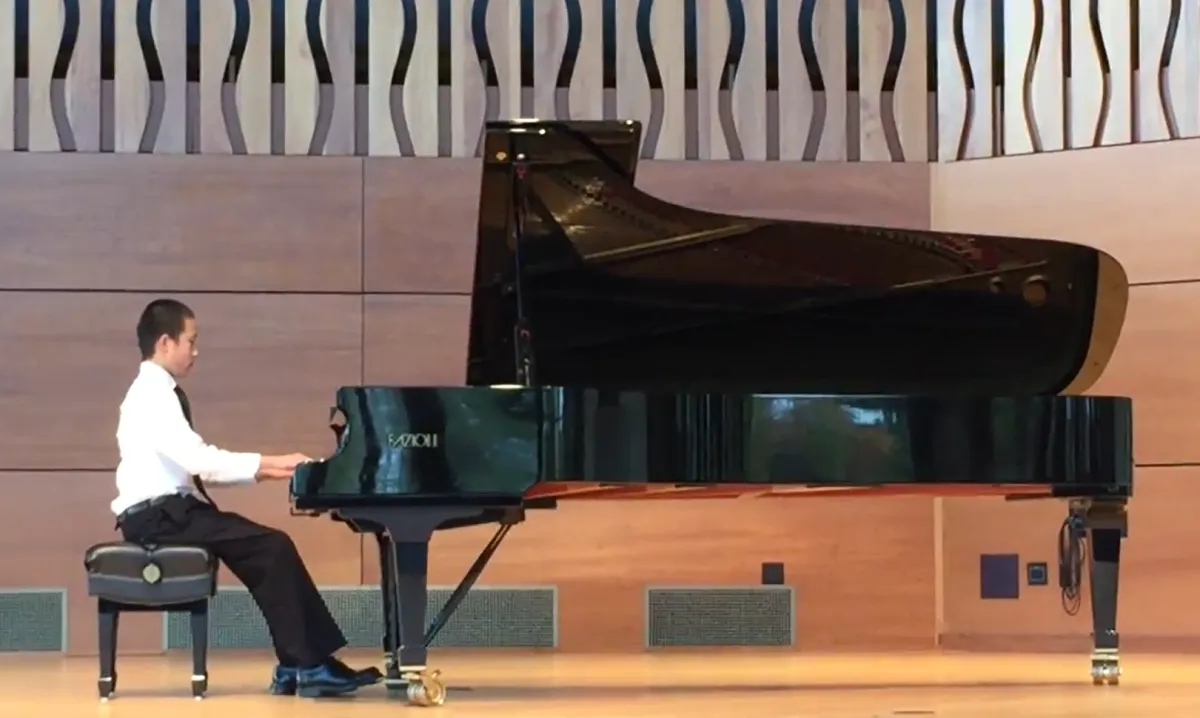Blog > What is piano lessons for adults?
What Are The Benefits of Learning The Piano For Kids?
Learning piano benefits children in many ways, including cognitive development, emotional well-being and cultural exposure. Piano lessons improve memory, language skills, focus and discipline. It also allows for self-expression, builds self-esteem and reduces stress.
Piano education can have a positive impact on children's development. Furthermore, learning piano can be a fun and rewarding experience for kids, and it is never too late to start learning. As parents, educators and music lovers, we encourage you to explore the many benefits of piano lessons for children.

Unlocking The Cognitive Benefits of Piano Lessons for Children
As parents and educators, we are always looking for ways to enhance the cognitive development of children. One of the most effective ways to do this is through piano lessons. Learning piano can have a positive impact on a child's cognitive development, including memory, language skills, and spatial-temporal reasoning.

Playing piano requires the use of both sides of the brain, stimulating the growth of new neural connections. This helps with memory and language skills, as children learn to read sheet music and recall musical pieces. Additionally, playing piano requires spatial-temporal reasoning, as children learn to coordinate the movement of their fingers on the keyboard, and understand the relationship between notes on sheet music.
Furthermore, piano lessons can also help children improve their concentration, focus and attention to detail. This is because playing piano requires a lot of mental focus and attention, and practicing regularly can help children develop these cognitive skills.
Emotional Benefits of Learning The Piano
Playing the piano can have a profound impact on the emotional well-being of children. It allows them to express themselves creatively and emotionally, and it helps to build self-esteem and confidence. Playing piano is a great way for children to channel their emotions and process their feelings in a positive way.
One of the key emotional benefits of playing piano is the sense of accomplishment that children feel as they progress in their skills. As they learn new pieces and become more proficient, they gain a sense of pride and self-worth. This can be particularly important for children who may struggle with self-esteem in other areas of their lives.

Playing piano can also provide children with an outlet for self-expression. It allows them to communicate their emotions and feelings through music, which can be a powerful and cathartic experience. Furthermore, performing in front of an audience can be a great opportunity for children to build self-confidence and showcase their talents.
Cultural & Social Journey for Kids
Learning piano can expose children to different cultures and styles of music, and provide opportunities for social interaction and teamwork. Through piano lessons, children can explore various genres of music, such as classical, jazz, and pop, and develop a deeper understanding and appreciation of the cultural and historical context behind the music.

Playing piano can also expose children to different cultures through the music of different composers and performers from around the world. This can help children understand and appreciate different cultures, music, and people. Additionally, learning piano can also provide children with an opportunity to learn about different historical periods and the role of music in those times.
Playing in a band or ensemble can also be a great opportunity for children to learn teamwork and social interaction. Piano lessons can help children learn to collaborate, communicate and work together to create beautiful music. This can be a valuable experience for children, as it teaches them how to work together and build relationships.
In conclusion, learning piano can provide children with an enriching cultural and social experience. Through piano lessons, children can explore various genres of music, such as classical, jazz, and pop, and develop a deeper understanding and appreciation of the cultural and historical context behind the music. Playing piano can also expose children to different cultures through the music of different composers and performers from around the world. Piano lessons can also provide opportunities for social interaction, teamwork and self-expression, through ensemble playing and performing in front of an audience. As parents, educators and music lovers, we encourage you to consider the cultural and social benefits of piano lessons for children, and give them the opportunity to discover and appreciate the beauty of music.
Blog > What is piano lessons for adults?
What Are The Benefits of Learning The Piano For Kids?

Learning piano benefits children in many ways, including cognitive development, emotional well-being and cultural exposure. Piano lessons improve memory, language skills, focus and discipline. It also allows for self-expression, builds self-esteem and reduces stress.
Piano education can have a positive impact on children's development. Furthermore, learning piano can be a fun and rewarding experience for kids, and it is never too late to start learning. As parents, educators and music lovers, we encourage you to explore the many benefits of piano lessons for children.
Unlocking The Cognitive Benefits of Piano Lessons for Children
As parents and educators, we are always looking for ways to enhance the cognitive development of children. One of the most effective ways to do this is through piano lessons. Learning piano can have a positive impact on a child's cognitive development, including memory, language skills, and spatial-temporal reasoning.

Playing piano requires the use of both sides of the brain, stimulating the growth of new neural connections. This helps with memory and language skills, as children learn to read sheet music and recall musical pieces. Additionally, playing piano requires spatial-temporal reasoning, as children learn to coordinate the movement of their fingers on the keyboard, and understand the relationship between notes on sheet music.
Furthermore, piano lessons can also help children improve their concentration, focus and attention to detail. This is because playing piano requires a lot of mental focus and attention, and practicing regularly can help children develop these cognitive skills.
Emotional Benefits of Learning The Piano
Playing the piano can have a profound impact on the emotional well-being of children. It allows them to express themselves creatively and emotionally, and it helps to build self-esteem and confidence. Playing piano is a great way for children to channel their emotions and process their feelings in a positive way.
One of the key emotional benefits of playing piano is the sense of accomplishment that children feel as they progress in their skills. As they learn new pieces and become more proficient, they gain a sense of pride and self-worth. This can be particularly important for children who may struggle with self-esteem in other areas of their lives.

Playing piano can also provide children with an outlet for self-expression. It allows them to communicate their emotions and feelings through music, which can be a powerful and cathartic experience. Furthermore, performing in front of an audience can be a great opportunity for children to build self-confidence and showcase their talents.
Cultural & Social Journey for Kids
Learning piano can expose children to different cultures and styles of music, and provide opportunities for social interaction and teamwork. Through piano lessons, children can explore various genres of music, such as classical, jazz, and pop, and develop a deeper understanding and appreciation of the cultural and historical context behind the music.

Playing piano can also expose children to different cultures through the music of different composers and performers from around the world. This can help children understand and appreciate different cultures, music, and people. Additionally, learning piano can also provide children with an opportunity to learn about different historical periods and the role of music in those times.
Playing in a band or ensemble can also be a great opportunity for children to learn teamwork and social interaction. Piano lessons can help children learn to collaborate, communicate and work together to create beautiful music. This can be a valuable experience for children, as it teaches them how to work together and build relationships.
In conclusion, learning piano can provide children with an enriching cultural and social experience. Through piano lessons, children can explore various genres of music, such as classical, jazz, and pop, and develop a deeper understanding and appreciation of the cultural and historical context behind the music. Playing piano can also expose children to different cultures through the music of different composers and performers from around the world. Piano lessons can also provide opportunities for social interaction, teamwork and self-expression, through ensemble playing and performing in front of an audience. As parents, educators and music lovers, we encourage you to consider the cultural and social benefits of piano lessons for children, and give them the opportunity to discover and appreciate the beauty of music.
Contact Us
Open Hours
Social Media
Monday - Friday: 10:00 AM - 7:00 PM
Saturday: 10:00 AM - 2:00 PM
Sunday: Closed
2026 | Dustin Callahan Piano Studio | Rights Reserved
Site Map | Powered By: Dustin Callahan Piano Studio
Contact Us
(866) 514-8661
999 Stewart Canyon Rd, Fallbrook CA 92028-8639
Service Hours
Monday - Friday: 10:00 AM - 7:00 PM
Saturday: 10:00 AM - 2:00 PM
Sunday: Closed
Social Media








